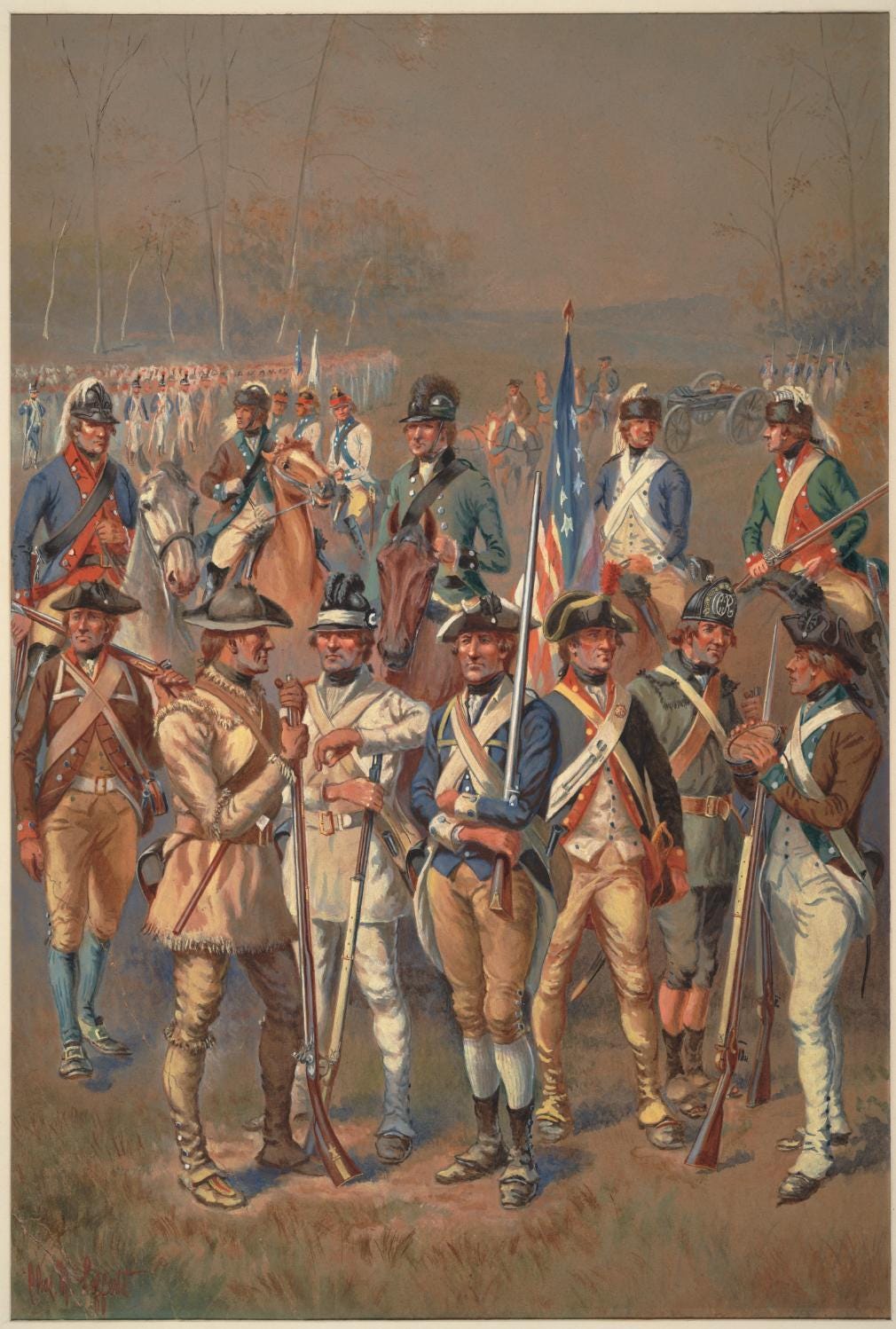TDIH: The “Affair at Young’s House”
Unfortunately, the conflict ended badly for American forces. Isn’t it stunning how many sacrifices were made that we might be free?!
On this day in 1780, British troops begin marching toward a Patriot outpost. Their intent? Attack the Continental soldiers then stationed at that outpost—the Westchester home of a local Patriot. Unfortunately, the so-called “Affair at Young’s House” would end badly for American forces.
Isn’t it stunning how many sacrifices were made that we might be free?!
At this point in the American Revolution, portions of New York were a kind of no-man’s land between the British lines in New York City and the American lines elsewhere. In the midst of this area was an outpost at the house of a militiaman, Joseph Young. The outpost stood at an important crossroads and was sometimes used by Continental troops who were protecting that part of the country.
In early February 1780, roughly 250 men under Lt. Colonel Joseph Thompson were holding the post. They weren’t supposed to stay too long. Thompson had been ordered to keep moving, so as not to be discovered by the British.
He apparently stayed at Young’s house a bit too long.
A British force left nearby Fort Knyphausen on the night of February 2. That fort had been known as Fort Washington when it was held by Americans, but now it was the staging area for a combined force of Hessians, British regulars, and Westchester Loyalists. The force of roughly 550 departed for Young’s house, dragging two field pieces with them.
Well, at least they tried to bring the field pieces. The snow was so deep that the attempt to carry them on sleds had to be abandoned part way through the march.
The British attack force arrived at Young’s house at about 9:00 a.m. the next morning. Thompson had received a warning that the British were coming, and he’d been advised to “take a stronger position a little in his rear.” Oddly, he didn’t do it. He was “confident that the enemy were only a body of horse, and that he could easily disperse them, and would not quit his ground.”
That didn’t work out so well.
When advance Hessian riders arrived, they quickly overtook and imprisoned the American picket guards. They then turned their focus to the house. The Hessian attack was soon reinforced by the arrival of British regulars.
Perhaps the outnumbered Americans never really stood a chance?
The American defense broke quickly, and the main battle was over in about 15 minutes. Many of the men escaped into the woods, while other defenders held the house for a bit longer. Unfortunately, the British soon overwhelmed these men, too. The British took many prisoners, then set fire to the house.
By some accounts, a handful of wounded Patriots were left to die inside the burning house.
How sad to be one of those Patriots, dying in that house, never knowing that your sacrifice wasn’t in vain.
The British surrender at Yorktown was just around the corner.
Sources can always be found on my website, here.





Stories such as this, taken in isolated form, would seem disastrous to the Patriot cause. If not for that last sentence, the whole story would be sad indeed. However, everything would be made worthwhile in short order and the invading British forces would soon be brought to their knees. Huzzah!
A day of remembrance for those who died to win our freedom. It is sad that the American commander did not have the wisdom to better disperse his men in a defendable manner much less to remain in one position too long.